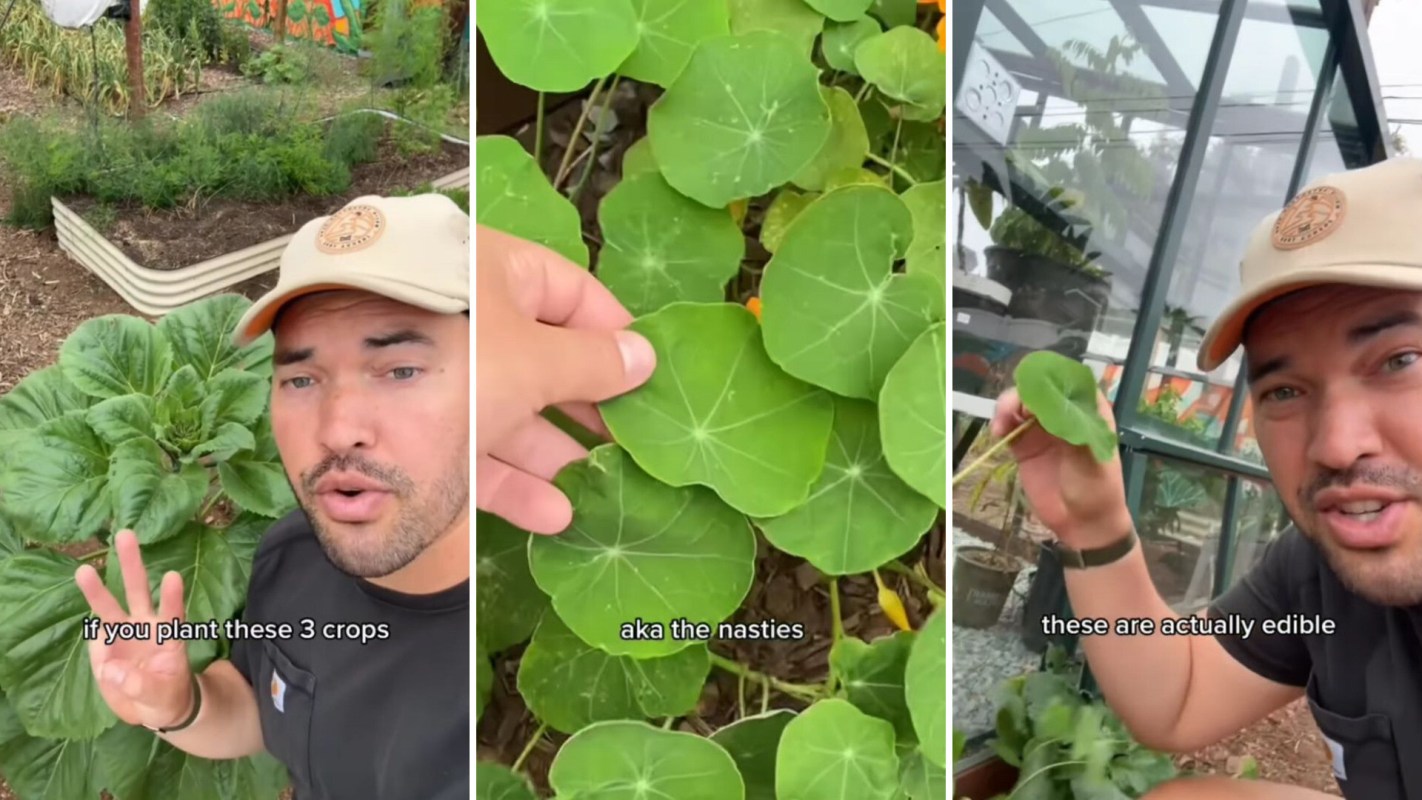Self-seeding plants may sound like a good idea for low-key gardeners, but you still need to know what you're getting yourself into.
As a warning, gardening Instagrammer Epic Gardening (@epicgardening) introduced three plants that are so resilient that they have basically taken over his garden.
The scoop
In a viral Instagram reel, Epic Gardening shows off the sunflowers, nasturtium, and alyssum that are flourishing in his backyard.
First, he reveals several sunflowers that he did not plant. Instead, they sprouted up on their own the year after he laid seeds.
This is due to the sunflower's distinctive seed head, which can contain as many as 2,000 seeds. As Epic Gardening explains, when birds eat these seeds, they get dropped on the ground elsewhere and continue their spread.
The flaming orange nasturtium also carries hundreds of seeds, which can drop and regrow quickly, even in the face of droughts.
Meanwhile, another clip shows how one tiny sprig of alyssum can quickly turn into an unruly white and green bush.
"If you plant these three crops just a single time, they will never leave your garden," the Instagrammer says. "Make sure you know what you're signing up for."
How it's helping
Gardeners can get caught off guard if they plant a staunch self-seeding plant without realizing it.
What starts as a low-maintenance self-propagating garden can rapidly get out of hand if the seeds spread.
As Epic Gardening points out, "Some of these we don't mind, the sunflowers are a welcome surprise every time they pop up," but nasturtium and alyssum can spread quickly and need to be kept in check.
This is especially a problem if you have planted non-native plants. Alyssum is considered an invasive species in the U.S., while nasturtium is considered invasive in warm areas like coastal California.
If invasive plants are too successful, then they can outpace native plants and colonize the water and soil nutrients available, which then upsets local biodiversity and animal populations.
What everyone's saying
In the comments, Instagram users shared their battles with self-seeding plants.
"Bamboo. Never plant bamboo. My neighbor's old owners of their house planted bamboo and (it) covers everything," one commenter wrote. "You can't even see their house anymore and every year it comes closer and closer to our house."
"Chamomile is another one that will reseed itself everywhere for all of eternity and amaranth!" another said.
"Mint. Went absolutely bonkers in our garden. Took so much effort to dig it all out," another warned.
Join our free newsletter for easy tips to save more, waste less, and help yourself while helping the planet.









